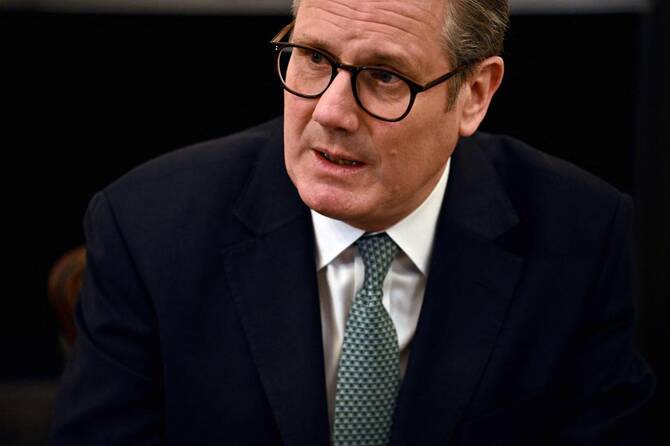WASHINGTON: The first US M1 Abrams tanks will arrive in Ukraine “next week,” US President Joe Biden said Thursday, boosting Kyiv’s forces as they battle Russian troops in a slow-moving counteroffensive.
“Next week, the first US Abrams tanks will be delivered in Ukraine,” Biden said at the White House, alongside his Ukrainian counterpart Volodymyr Zelensky, who is on his second visit to the United States since Russia invaded his country in February 2022.
Biden also said he had “approved the next tranche of security assistance for Ukraine,” which the Pentagon later valued at $325 million.
It includes air defense missiles, ammunition for HIMARS precision rocket launchers, anti-tank weapons, and artillery rounds.
But the package does not feature the long-range ATACMS missiles that Kyiv has repeatedly requested.
It does include 155mm rounds that contain cluster munitions, which Washington first agreed to provide to Ukraine in July despite concerns over the long-term risk posed to civilians by bomblets that fail to explode.
The United States said it has received assurances from Kyiv that it would minimize the risk the weapons pose to civilians, including by not using the munitions in populated areas.
Washington had promised the 31 Abrams tanks to Kyiv at the start of the year, part of more than $43 billion in security assistance pledged by the United States over the past 18 months.
The tanks will be paired with 120mm armor-piercing depleted uranium rounds.
Such munitions are controversial due to their association with health problems, such as cancer and birth defects, in areas where they were used in past conflicts, although they have not been definitively proven to have caused them.
The decision to provide Abrams tanks to Ukraine represented a U-turn as American defense officials had repeatedly said they were ill-suited for Kyiv’s forces due to their complexity.


























